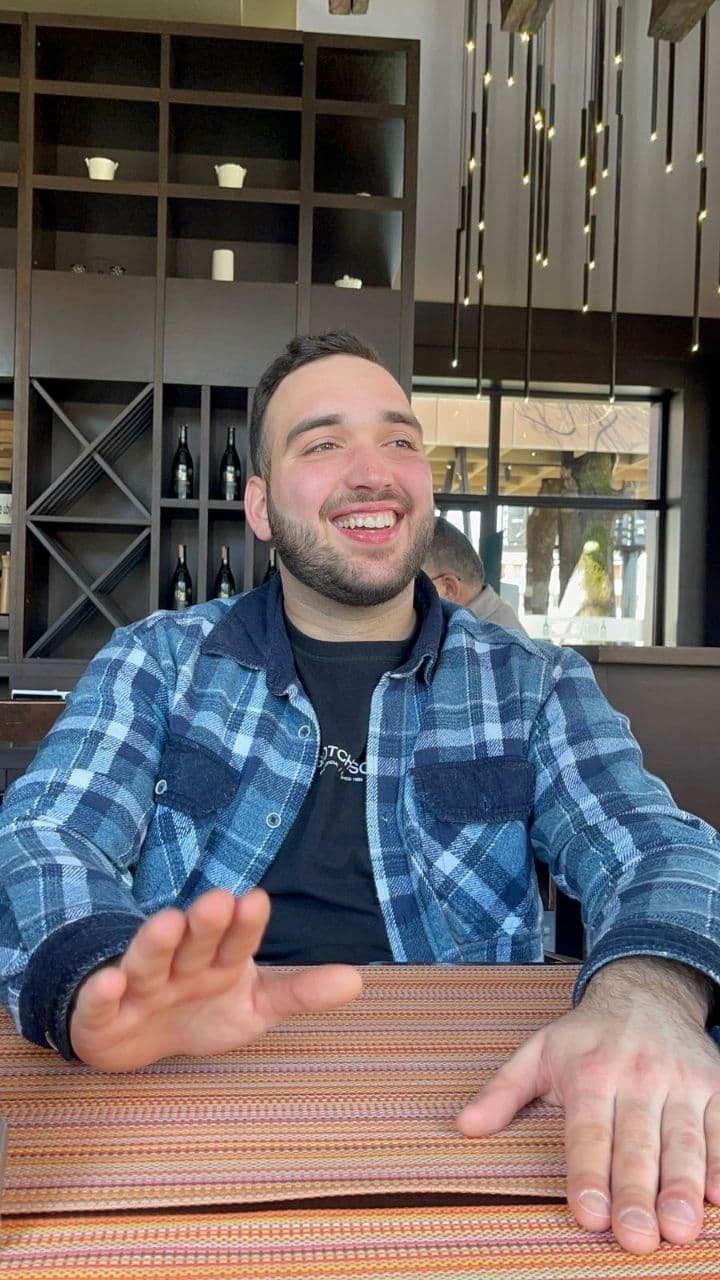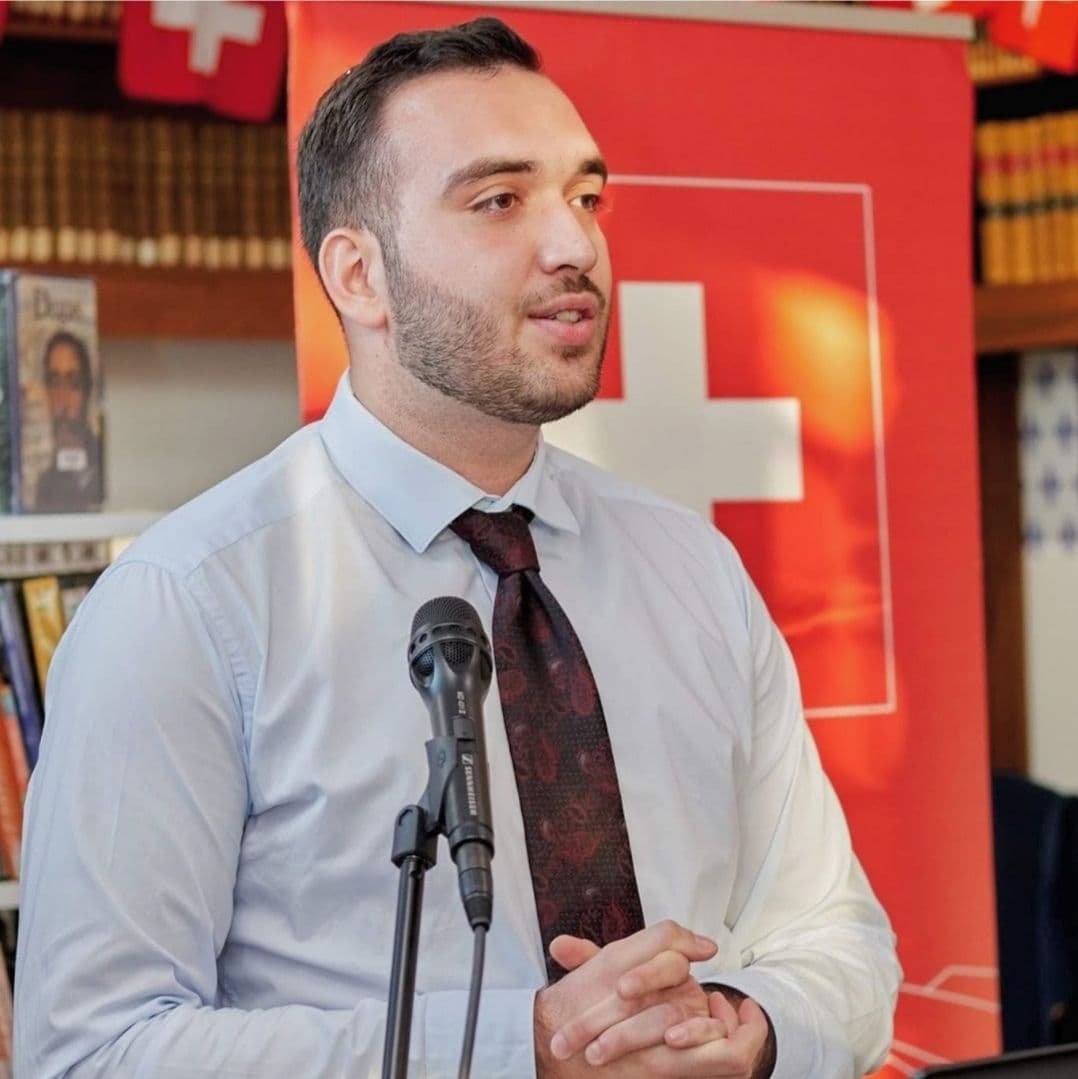Aleksa Tatic: "My wish is that based on my research in BiH, the situation in that country will improve"
During high school, Aleksa worked as a waiter in various hotels, as a host at the Geneva Motor Show or the FIFA Fair in Zurich, and as a promoter of Petit Marsellais and other brands at festivals. As he says, all these experiences have taught him to deal with people of different backgrounds and understand them.
As a student, Aleksa did an internship at the Swiss Embassy in Moscow, where he worked in diplomatic circles and reported on political events, court cases, but also briefings at embassies.
During his master's degree, he worked as an assistant in the official agency for the promotion of the economic area Zurich - Greater Zurich Area, where he gained insight into public - private partnership. On that occasion, he was involved in location marketing, making the Zurich economic area more attractive to foreign companies from the technology scene.
The topic of Aleksa Tatić's master's thesis was Sustainable Waste Management in the Republic of Srpska. Waste management in Bosnia and Herzegovina is the responsibility of the entities, which, according to Aleksa, is not effective and is a problem.
"Through my master's thesis, I have dedicated myself to the existing problems. I researched what works in the existing system and what doesn't, but also what are the biggest potentials. "Our bad habit is that we do not look at potentials and what can be improved, but only what is bad," he said.
In the entire process of researching the problem, Aleksa decided to contact all actors in the Republika Srpska entity who are active in the waste management process. As he says, in Bosnia and Herzegovina, these are, for the most part, international actors, international organizations and foreign embassies. In addition to them, for the purposes of research, he also researched the activities of state actors, state funds and various private actors, ie companies. In addition to the actors, Alexa did research with ordinary people who use that system, in order to hear their opinion.
"I looked at all the perspectives and put together a model in which I wanted to show what their cooperation looks like, and gave a proposal for a solution on how the system could be improved without a lot of investment," added Aleksa.
Since he lives in Switzerland, establishing contacts and finding information was not easy, because during the research he could not directly reach the interlocutor and talk to them. As a result, many questions at the beginning of his research remained unanswered. According to Alexa, after establishing contact with the i-platform, contacting interlocutors and gathering information took place much faster.
"With the help of the i-platform, which stood behind me, I established contacts with all of them, since as an individual it was very difficult for me to establish it," he added.
Today, Aleksa has a master's degree in international relations and is currently employed in the sustainable energy sector, which plans to expand to Eastern Europe in the future. Guided by his research, but also by his expertise, Aleksa believes that the key to solving environmental problems is in the system, but also in society.

"Ecology is never a topic of discussion in Bosnia and Herzegovina, while there is a greater awareness of it outside. It is necessary to start a story on this topic in society and talk about throwing waste on playgrounds, illegal dumps, etc. If not just one person talks about it, but several of them, people's awareness of this topic begins to rise. That is something that can start from the people ", pointed out Aleksa.
In his opinion, what can be solved in the system is the principle of charging: "Waste cannot be charged according to the area in which people live. People need to pay as much as they produce. That way, they will be motivated to produce less waste."
Departure of young people from BiH
In the context of the topic of young people leaving Bosnia and Herzegovina, Aleksa states that he would like people from Bosnia and Herzegovina to show more self-initiative.
"I have a feeling that, sometimes, people in Bosnia and Herzegovina prefer to sit in cafes and talk about what could be done and how it could be. I would like the market in Bosnia and Herzegovina to be liberalized, so that companies can be started more easily. Certainly, it is necessary to keep people so that human capital does not leave the country. We do not have many educated people in the country who have the expertise and who can directly help the economy of Bosnia and Herzegovina. Everyone goes outside. That is certainly something that can change. However, if they leave, it is necessary to improve communication with people from the diaspora, and not forget them, "added Alexa.
Also, Aleksa believes that the authorities in Bosnia and Herzegovina are not doing anything to keep young people, and he explained this with the example of the Swiss internship through which young people can use their expertise and knowledge to improve a problem.
Bosnia and Herzegovina does not have a developed environmental protection policy, and there is a lot of room for action and improvement in this field. According to Aleksa, there are opportunities for young people through their internships, but young people, despite graduating from environmental colleges in Bosnia and Herzegovina, do not have jobs or opportunities.
"People are eager for opportunities, but also for salaries. "I think that's the main reason why young people are leaving," he said.
Diaspora networking
You had the opportunity to read about the Association "5 Million Friends of Bosnia and Herzegovina" on the page i-platform.ch, and we talked about the activities of the Association and the volunteer engagement of its members with Alex, who is currently active in the Swiss branch "Bosnians and Herzegovinians in Switzerland ". The successful establishment of the Bosnian Diaspora base through the project "5 Million Friends of Bosnia and Herzegovina" backed by two organizations in Switzerland: La Terra Nostra and i-diaspora / i-platform, and organizations from Austria and Sweden, is the strategic goal of this project.
Thus, the goal is to form national branches in the countries with the largest Bosnian diaspora, the first of which is the "Bosnians and Herzegovinians in Switzerland" branch.
"Through the national branches '5 Million Friends of Bosnia and Herzegovina' wants to use the potential of the diaspora, to make a transfer of human capital and to accelerate the social and economic development of Bosnia and Herzegovina," said Aleksa, who is one of the volunteers in the project "5 Million Friends of Bosnia and Herzegovina".
Now that he has started his professional career, Aleksa has many plans for the future. As he points out, the i-platform connected him with actors in Bosnia and Herzegovina who are active in the field of environmental protection. In that way, he hopes to put the results of his research into practice. "My wish is to improve something based on my research, and not just leave everything on paper."
Become a member of our network!
Note: Copying parts or the entire text is allowed with the obligatory citation of the source.

